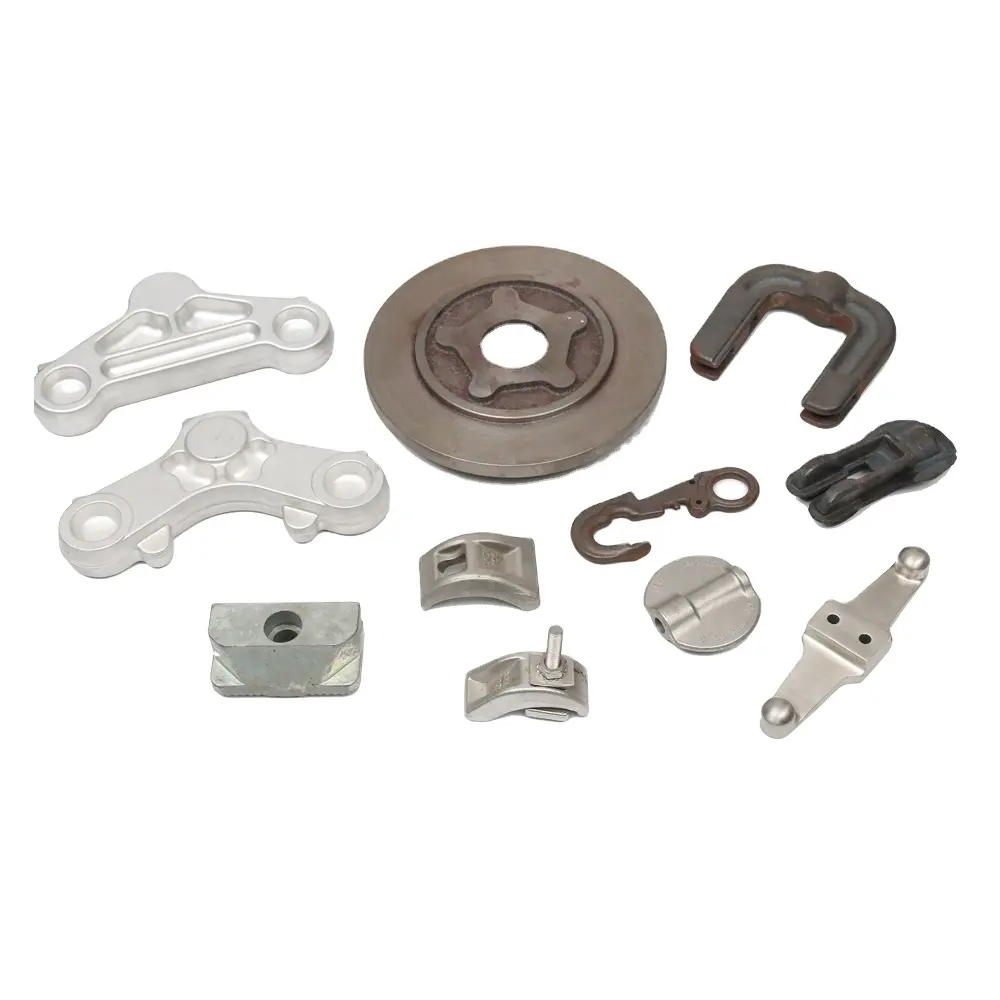Casting Processing Methods and Material Options
2025-09-05
This comprehensive guide explores various Casting Processing techniques and material selections offered by Jinggang, a trusted manufacturer with decades of expertise in precision casting solutions. We will delve into the technical specifics of our products, highlight key material properties, and provide detailed parameter comparisons to help you make informed decisions for your industrial projects.
Understanding Casting Processing
Casting Processing is a foundational manufacturing method where molten material is poured into a mold and solidifies into a desired shape. It is widely used across industries such as automotive, aerospace, construction, and machinery due to its ability to produce complex geometries with high structural integrity. At Jinggang, we employ advanced casting technologies to ensure precision, durability, and cost-effectiveness for every component we produce.
Key Casting Methods Offered by Jinggang
We specialize in multiple casting techniques, each suited for specific applications and material requirements. Below are the primary methods we utilize:
-
Sand Casting
Ideal for large parts and low-to-medium volume production. It offers flexibility in material choice and design complexity. -
Investment Casting
Known for high accuracy and excellent surface finish, this method is perfect for intricate components requiring tight tolerances. -
Die Casting
Suitable for high-volume production of non-ferrous metals, offering superior dimensional consistency and rapid cycle times. -
Gravity Casting
Used for producing dense, high-quality parts with minimal porosity, often applied for aluminum and copper-based alloys. -
Centrifugal Casting
Excellent for creating symmetrical parts like pipes and cylinders, ensuring uniform microstructure and enhanced mechanical properties.
Material Options for Casting Processing
Selecting the right material is critical to achieving desired performance characteristics. Jinggang provides a wide range of materials tailored to meet diverse industrial needs:
-
Gray Iron
Known for its excellent damping capacity and wear resistance, commonly used in engine blocks and machinery bases. -
Ductile Iron
Offers high strength, toughness, and ductility, making it suitable for gears, crankshafts, and heavy-duty components. -
Stainless Steel
Provides superior corrosion resistance and mechanical strength, ideal for medical devices, food processing equipment, and chemical containers. -
Aluminum Alloys
Lightweight with good thermal and electrical conductivity, widely used in automotive and aerospace industries. -
Brass and Bronze
valued for their decorative appeal, corrosion resistance, and anti-frictional properties, often employed in valves, fittings, and bearings. -
Carbon Steel
Delivers high tensile strength and impact resistance, commonly used in structural applications and tooling.
Product Parameters and Technical Specifications
To ensure transparency and help you evaluate our offerings, we have compiled detailed parameters for our standard casting products. The following tables summarize key specifications for commonly requested materials and processes.
Table 1: Material Properties Comparison
| Material | Tensile Strength (MPa) | Hardness (HB) | Impact Resistance | Corrosion Resistance | Primary Applications |
|---|---|---|---|---|---|
| Gray Iron | 250-400 | 180-250 | Moderate | Low | Engine blocks, brake discs |
| Ductile Iron | 400-900 | 190-300 | High | Moderate | Gears, hydraulic components |
| Stainless Steel | 500-1000 | 150-250 | High | Excellent | Valves, pumps, medical tools |
| Aluminum Alloy | 150-350 | 60-120 | Moderate | Good | Aerospace parts, housings |
| Bronze | 200-500 | 70-200 | Good | Excellent | Bearings, marine fittings |
| Carbon Steel | 400-800 | 150-250 | High | Low | Machinery frames, shafts |
Table 2: Casting Process Capabilities
| Process | Tolerance (mm) | Surface Roughness (Ra) | Typical Part Size | Suitable Materials |
|---|---|---|---|---|
| Sand Casting | ±0.5 - ±2.0 | 6.3-25 μm | Up to 5000 kg | Iron, steel, aluminum, bronze |
| Investment Casting | ±0.1 - ±0.5 | 1.6-6.3 μm | 0.1-50 kg | Stainless steel, superalloys |
| Die Casting | ±0.05 - ±0.2 | 0.8-3.2 μm | 0.1-50 kg | Aluminum, zinc, magnesium |
| Gravity Casting | ±0.2 - ±0.5 | 3.2-12.5 μm | 1-200 kg | Aluminum, copper alloys |
| Centrifugal Casting | ±0.5 - ±1.5 | 3.2-12.5 μm | Up to 3000 kg | Iron, steel, stainless steel |
Why Choose Jinggang for Casting Processing?
At Jinggang, we combine traditional craftsmanship with modern technology to deliver castings that meet the highest standards of quality and reliability. Our facilities are equipped with state-of-the-art machinery, and our team rigorously inspects each product for dimensional accuracy, material integrity, and performance consistency. We also offer custom solutions tailored to unique project requirements, ensuring that every client receives optimal results.
We understand that successful manufacturing partnerships depend on trust, communication, and technical expertise. That’s why we work closely with our clients from design to delivery, providing support at every step of the Casting Processing journey.
Contact Us for Custom Solutions
If you have specific requirements or need assistance selecting the right casting method and material, our engineering team is ready to help. We pride ourselves on responsiveness and our ability to tackle complex challenges with innovative solutions.
I invite you to reach out to me directly at [email protected] for a detailed consultation or to request a quote. Let’s collaborate to bring your projects to life with precision and efficiency.



